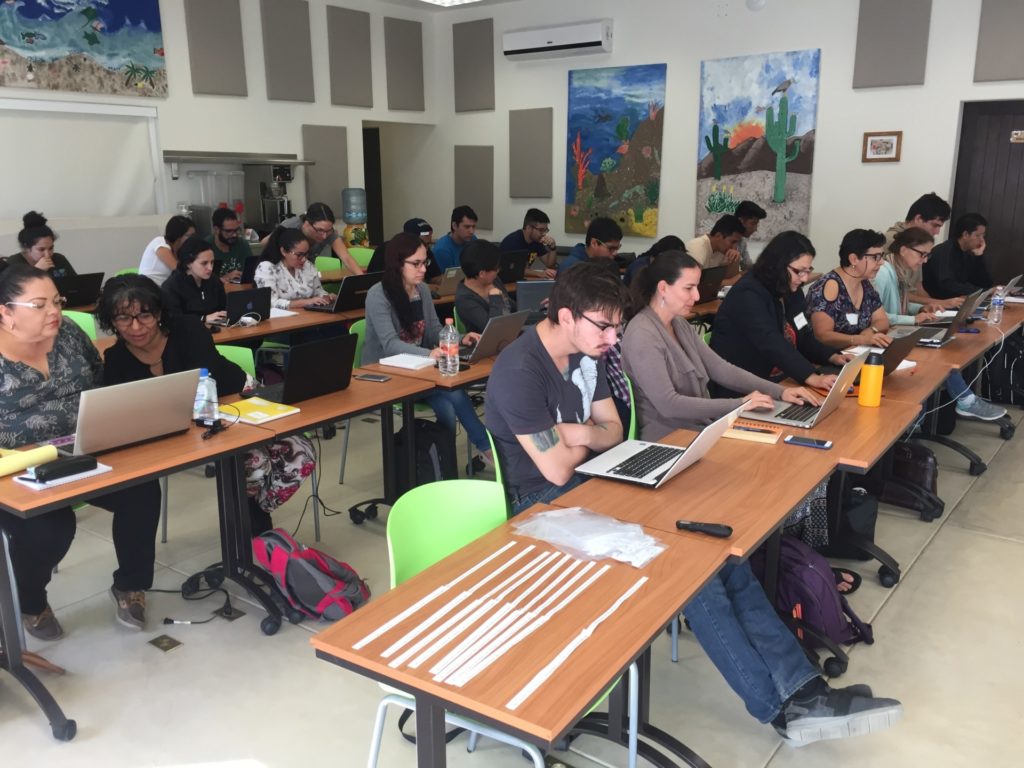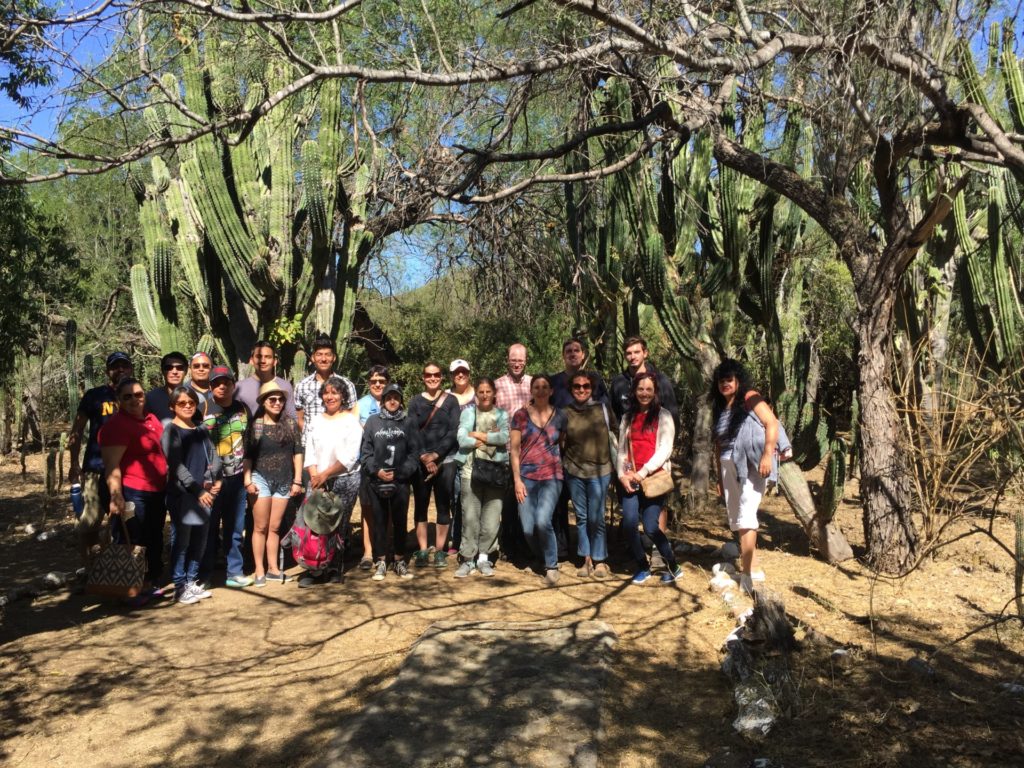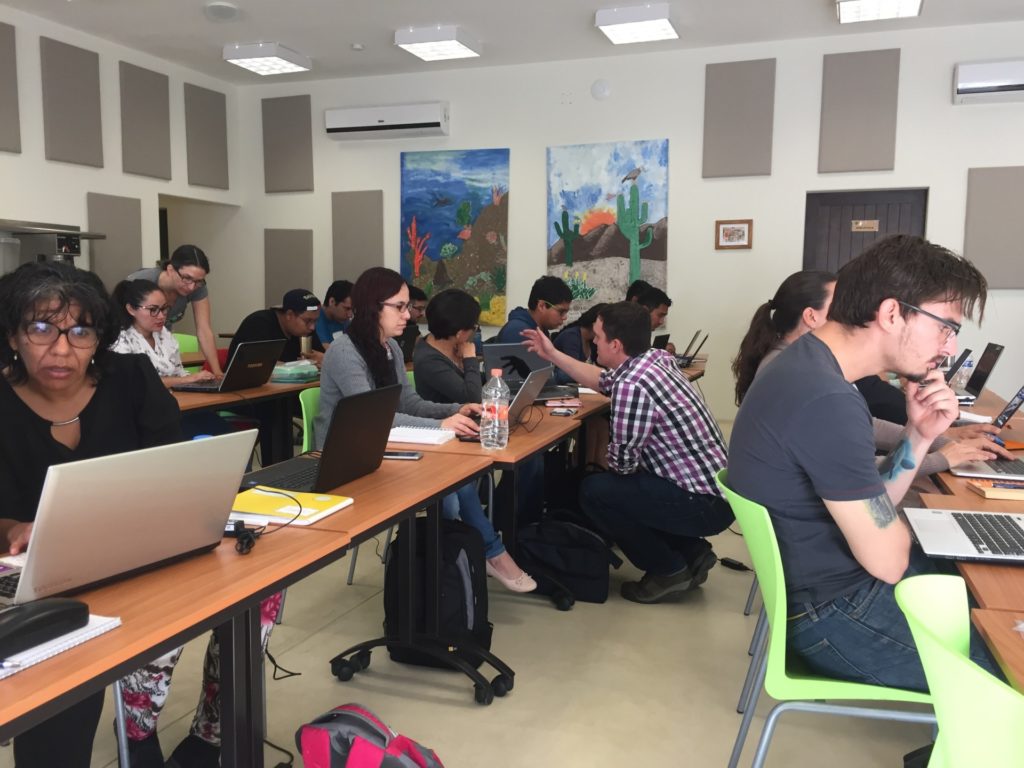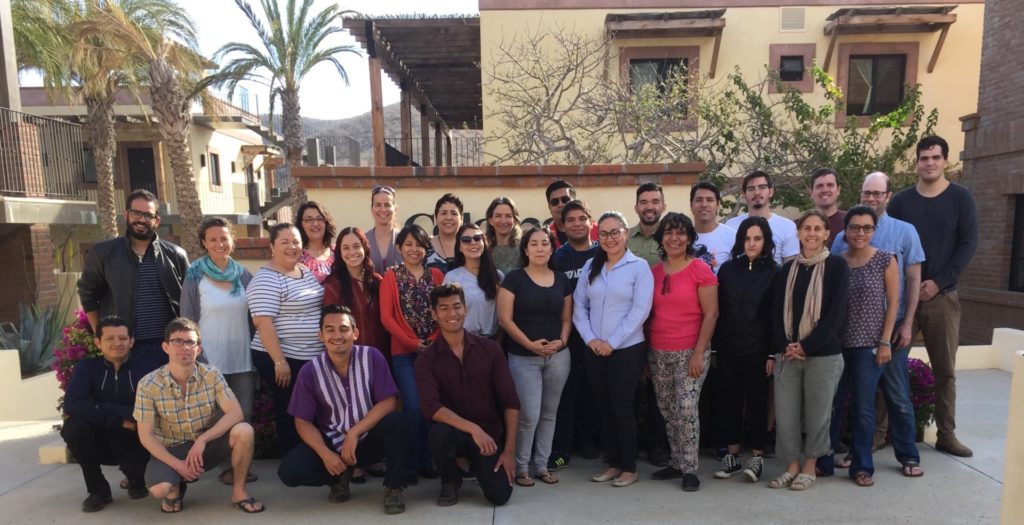


Para leer en español, haga clic aquí
Rafael Carlo Garcia Acosta and his fellow classmate hitchhiked 900 miles down the Baja California Sur peninsula – from Ensenada to Todos Santos – to participate in a Computational Biology course at the Colorado State University Todos Santos Center.
“When we heard about this workshop, we were very excited since there aren’t many of these types of courses near us,” said Garcia Acosta, an undergraduate student at la Universidad Autónoma de Baja California (UABC). “There was only one problem; being college students, we didn’t really have a lot of money for transport, but being biologists we were used to long walks in rural areas and camping, which [is] how we got the idea to hitchhike the way here.”
The course that Garcia Acosta sought out was a five-day Computational Biology workshop, which sold out for the third year in a row, bringing together more than 30 students, researchers, and faculty from across Mexico for the coursework, focused on Next-Gen sequencing and genomics data analysis.
The majority of the attendees were focused on applying the topics taught during the course to their research in areas of computer programming, RNA-sequencing and gene expression, microbial genomics, and population and evolutionary genomics.
Hamid Tejas, a PhD student at CIBNOR in La Paz, B.C.S., hopes to apply what he learned to his direct research.
“My main motivation was my PhD project, since I’m going to work with gene expression in tomato plants and I’m going to use NGS tools like RNA-seq, it was important for me to attend to the workshop,” said Tejas. “All the topics that we saw, I enjoyed and learned a lot. Dan, Kim, Mark and Tai are excellent professors, they are very patient, and they know how to explain in a simple way every topic of this workshop. Also, the information, the exercises and all the resources that they shared with us are the best, you can learn very fast.”
David A. Paz-García, Asistente Académico at Centro de Investigaciones Biológicas del Noroeste, was most interested in the course because of the fast-paced advances in the field.
“Technology and the capacity to obtain information is growing so fast that the capacity and preparation of researchers is highly challenging,” he said. “The analysis of this massive data, Bioinformatics, is an area where you need to keep yourself updated.
“I was interested to attend to the Computational Biology and Genomics workshop to obtain more experience from the professors and know the different methods and analysis that they are using to resolve key research questions.”
For Garcia Acosta, one of the students who hitchhiked 900 miles to attend the workshop, the coursework spurred a desire to continue his education in the field.
“All of the material viewed in the workshop was new to me, so the most important thing I learned would probably be integrating informatics to the knowledge acquired in my university,” he said. “I wanted to gain skills in bioinformatics to hopefully do a master’s dealing with these subjects.”
Workshop testimonials
“Is a really good course if you want to know about biology computational, is a good start and a good course for clear out some doubts, I totally recommend it.” – Anais Lucero Olachea, working on a master’s degree at CIBNOR, La Paz B.C.S, Mexico
“I have learned several important concepts and interesting approaches on Computational biology, this has improved my perspective for future research. It is an outstanding course! It is very well designed and dynamic. Professors are so kind and they are experts on their fields, which is a very important issue.” – Ramiro José González Duarte, Postdoc en el grupo de Bioquímica del CIBNOR, La Paz, BCS, México
“The course is well structured, with the important information teaching clear and accessible for even persons without any experience about bioinformatics. Excellent professors.” – Gabriela Mendoza Carrión, CIBNOR, La Paz, BCS, México
“In CIBNOR other students comment about the workshop, and in the lab where I am making my PhD we usually want to compare physiological conditions of the organisms we work with and I am interested in use the RNA-seq analysis to do it, so I decide to come.” – Sergio Alan Ulaje Fernandez, CIBNOR
“It is very well-prepared course and it is an excellent approach to computational biology and bioinformatics for beginners. I’ll be glad to continue with this course in the next level like a second part.” – Rubi Alejandra Martinez Camacho, biotechnology laboratory chief technician in ITLP

About the Colorado State University Todos Santos Center
Located in Baja California Sur, Mexico, CSU Todos Santos Center is the University’s only international location, providing research and educational opportunities in alignment with existing University curricula.
Advancing CSU’s mission of teaching, research, service, and outreach, the Center collaborates with Mexican universities and organizations, and provides workshops and programs for visitors and local residents.
CSU’s vision in Todos Santos is to cultivate generations of global citizens and to partner in the creation of thriving communities through experiential learning and the exchange of knowledge. For additional information, visit todossantos.colostate.edu.